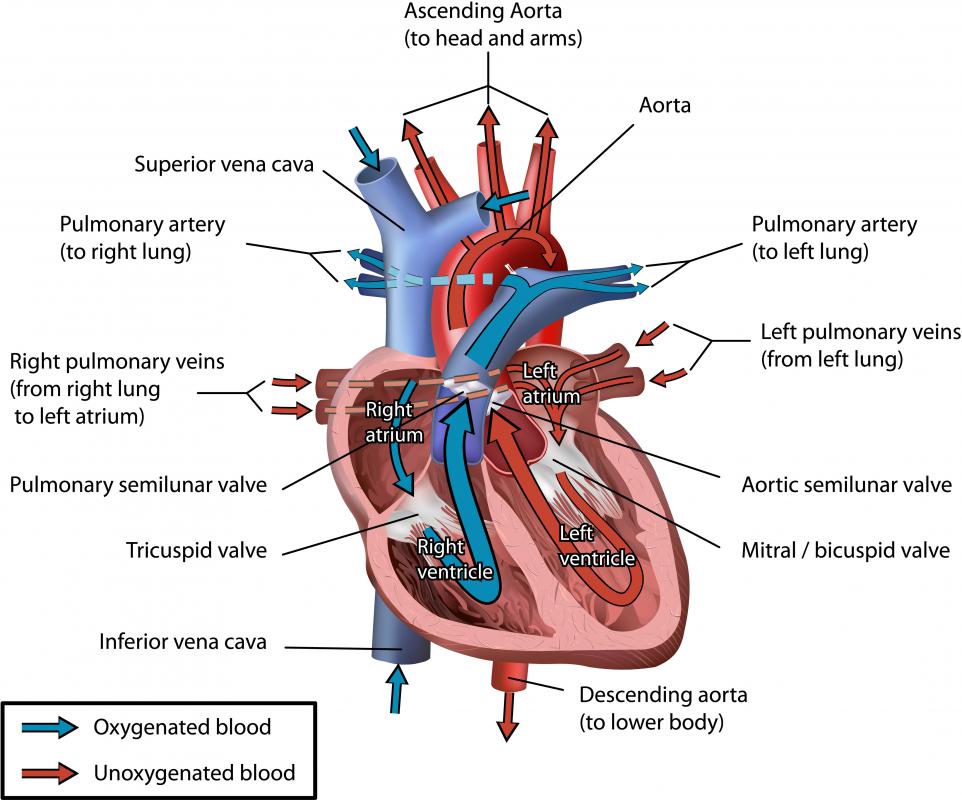At WiseGEEK, we're committed to delivering accurate, trustworthy information. Our expert-authored content is rigorously fact-checked and sourced from credible authorities. Discover how we uphold the highest standards in providing you with reliable knowledge.
What Are Possible Risks of a Bioprosthetic Valve?
Potential risks of a bioprosthetic heart valve can include mechanical hemolytic anemia, failure, endocarditis, and rejection. There is also a potential for clotting problems, although this is more common with mechanical valves and may be adequately prevented with anticoagulant therapy to protect the patient. These risks may be considered before recommending a bioprosthetic valve to a patient, who may want to discuss the available options with a physician before deciding on how to proceed with a heart valve replacement. It’s also important to be aware that ongoing follow-up is necessary to monitor heart health and confirm the device is working.
In mechanical hemolytic anemia, turbulence in the blood caused by the bioprosthetic valve causes red blood cell destruction. This can outstrip the body’s ability to produce new red blood cells, which leads over time to an overall drop in their concentrations. Patients with hemolytic anemia can experience symptoms like fatigue and bluing at the extremities because their bodies don’t get enough oxygen. A blood test can reveal signs that there are not enough red blood cells, and if a patient has a replacement heart valve, this may be suspected as the culprit.

Valve failure is of particular concern with a bioprosthetic valve because they are less durable than their mechanical counterparts. Over time, the porcine, bovine, equine, or human components of the valve can start to break down, making it operate less efficiently; in 10 to 15 years, the patient may need a new one. Some doctors avoid bioprosthetic heart valves in patients under 65 on the grounds that the patient may need multiple surgeries over time to replace one or more failing devices, and this may pose an unacceptable risk.

Endocarditis is also a potential risk, although it is small, thanks to clean production and surgical techniques along with other controls designed to limit the chances of infections. Mechanical and bioprosthetic valves tend to perform about the same when it comes to the chances of developing endocarditis. Patients may need to take some preventative steps like using antibiotics before dental procedures to protect themselves from this potentially dangerous infection.

Finally, there is a chance of rejection with a bioprosthetic valve, which is less of an issue with mechanical options because they are made from biocompatible material. The body may recognize donor material as a threat and start attacking it, causing the valve to fail. Medications can be used to limit the risk of rejection, or a doctor may consider recommending an autograft, where the material for a bioprosthetic valve is harvested directly from the patient.
AS FEATURED ON:
AS FEATURED ON:















Discuss this Article
Post your comments